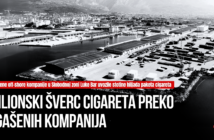Partnership at personal measure
The question is: weather the company suspected for deceiving consumers and abusing monopoly in its own state is the real partner to manage the biggest Montenegrin company and prepare the announced liberalisation of electric energy market in Montenegro.
January 1. 2010., when the Italian A2A as the minority owner will officially take over the management in Elektroprivreda Crne Gore is approaching.
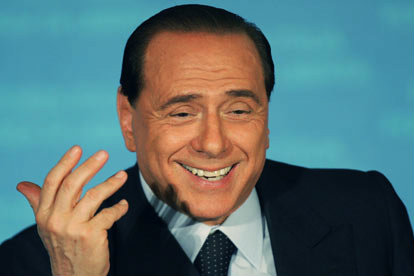 PROLOGUE: Formally, this is the result of the process of partial privatisation and recapitalisation, which the Government of Montenegro started at the beginning of the year, and after which A2A, for approximately 420 million Euros became the owner of 43.7 percent of shares of EPCG. However, this arrangement is actually the consequence of the agreement between the governments led by Silvio Berlusconi and Milo Đukanović. What was started in March, when the Italian Prime Minister visited Podgorica, was concluded on June 16 this year, when Montenegro and the Republic of Italy signed a Memorandum on Cooperation in the development of energy sector. The agreement that was verified by the Ministers of Economy Branko Vujović and Claudio Scajola envisages «establishment of a framework based on joint cooperation in the fields of energy, natural gas and oil, with a special focus on the development of electric energy transmition capacities, renewable energy sources and energy efficiency…». Alredy the following month, at the height of the tender process, A2A points to this Memorandum as one of the most important «recommendations» for obtaining the status of the first ranked tenderer.
PROLOGUE: Formally, this is the result of the process of partial privatisation and recapitalisation, which the Government of Montenegro started at the beginning of the year, and after which A2A, for approximately 420 million Euros became the owner of 43.7 percent of shares of EPCG. However, this arrangement is actually the consequence of the agreement between the governments led by Silvio Berlusconi and Milo Đukanović. What was started in March, when the Italian Prime Minister visited Podgorica, was concluded on June 16 this year, when Montenegro and the Republic of Italy signed a Memorandum on Cooperation in the development of energy sector. The agreement that was verified by the Ministers of Economy Branko Vujović and Claudio Scajola envisages «establishment of a framework based on joint cooperation in the fields of energy, natural gas and oil, with a special focus on the development of electric energy transmition capacities, renewable energy sources and energy efficiency…». Alredy the following month, at the height of the tender process, A2A points to this Memorandum as one of the most important «recommendations» for obtaining the status of the first ranked tenderer.
«In the light of the International Agreement signed in Podgorica on June 16 2009, a scenario of the energy sector in South East Europe was conceived», says the document of A2A – references of the tenderer. It states that on the «Italian side» the key actors of this Agreement are A2A, Enel (the biggest Italian energy operator) and Terna (primary owner of high voltage transmission network in Italy) and that they have already assigned the tasks between themselves:
«The task which A2A obtained from Terna and Enel, owing to the official agreement signed in the Ministry of Industry on 27 May 2009, is the management of EPCG by means of participation in the privatisation tender and develolpment and management of the existing and the planned hydropower plants in Montenegro. As a result of that, the role of A2A is crucial for implementation of the International Agreement»!
It seems that along with the market and tradition A2A inherited from the founding companies also – problems with the Italian judiciary.
Thus, three Italian companies made an official agreement already at the end of May based on the fact that A2A was to obtain the right to manage EPCG several months later. This did not bother Montenegrin negotiators in this business. On the contrary, the criteria according to which the other participants in the tender were disqualified remained unclear to date, so that A2A remained the only qualified tenderer. The elimination of Greek companies which were ready to pay approximately one third more than A2A (expressed in money – around 100 million Euros) is in particular problematic.
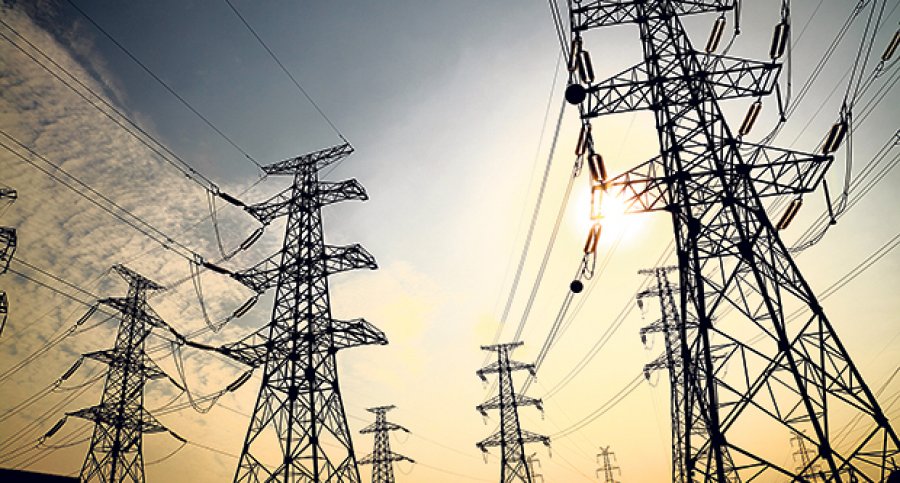 ON THE WORD: In absence of data and official documents, Montenegrin public was forced to believe the word of privatisation officials, headed by the Deputy Prime Minister Vujica Lazović, that there is nothing disputable in the entire business, except the illegal procedure of minority shareholders shares buy-off.
ON THE WORD: In absence of data and official documents, Montenegrin public was forced to believe the word of privatisation officials, headed by the Deputy Prime Minister Vujica Lazović, that there is nothing disputable in the entire business, except the illegal procedure of minority shareholders shares buy-off.
During that time, A2A was building its positions in Montenegro. By mid November its management hosted a group of Montenegrin journalists in Italy. Prior to this, a statement arrived from Milan saying that «it is obvious and indisputable that A2A is not a company controlled by Italian mafia ”, with the warning: «If Montenegrin media continue to publish incorrect and unfounded information on our company, we will start the necessary and adequate initiatives with a view to defend the right, reputation and corporative image ”.
The statement arrived as a response to the critique of Nebojša Medojević, President of the National Council for European Integration who, for radio Deutsche Welle, commented on the agreement between the Government of Montenegro and A2A: „This is the consequence of good relations between Silvio Berlusconi, because he too has interests in the company A2A, and Montenegrin Government led by Milo Đukanović. Still, it is yet to be seen weather this will be a quality relationship between the two states.“ Medojević assessed that it was not the best partner that was selected for privatisation of EPCG: «The company A2A is a public utility company that performs garbage collection services. Those who know better the Italian scene know that there are strong accusations of many, prosecutors and police officers and opposition politicians that the Italian mafia has a say in the business with garbage collection….“. From A2A they said assessments like these are entirely without grounds and represent a heavy libel for reputation and business integrity of the company.
Accepting as indisputable the fact that A2A is not a company controlled by the mafia, and respecting their desire to write more about promised investments and business successes than on the disputable places that accompanied the arrangement of A2A in Montenegro, it is necessary to point to «details» that could contribute to the creation of a realistic picture of what the joint business of A2A and the Government will contribute to the citizens and the economy of Montenegro.
As early as by the end of May, three Italian companies made an official agreement based on the fact that A2A was to obtain the right to manage EPCG several months later. This did not bother Montenegrin negotiators in this business. On the contrary, the criteria according to which A2A remained the only qualified tenderer in fight for the shares of Elektroprivreda remained unclear to date.
FACTS AND DOUBTS: A2A is a company that was officially established on January 1 last year, through merging of AEM from Milan and ASM from Brescia. These are companies with several decades long tradition that were in the majority ownership of the towns-founders in which they performed “utility services ” – production and distribution of electric energy and gas, distribution of water and “waste materials management ”. In the first year of its operation (2008), A2A had 8.5 thousand employees, a budget exceeding six billion and a net profit of 316 million Euros.
It can be even said that, indirectly, A2A is alrady present in Montenegro. According to the data of MANS, through Delmi company A2A has one half of the shares of Transalpina de Energia which holds 61 percent of shares of the second biggest energy company in Italy, Edison. Edison, again, has shares in the Greek Helenic Petroleum which has been, since 1999, the majority owner of Montenegrin Jugopetrol. If it is known that in fierce competition the business of Jugopetrol privatisation was remembered as one of the most controversial (the key provisions of the purchase agreement like the one on recapitalisation, have not been fulfilled), it is clear why the Italians did not boast of these references. Just like the parnership with the Russian Gasprom, through joint company A2A Beta, is not mentioned very often.
It seems that, along with a wide market and tradition, A2A inherited from the founder also – problems with the Italian judiciary.
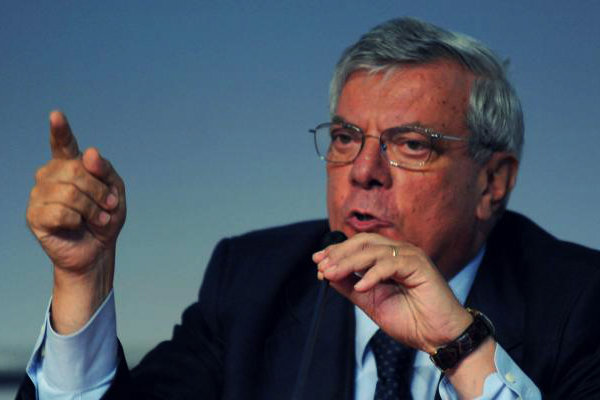 Namely, while Montenegrin authorities prepared the tender for the selection of a strategic partner in EPCG, Italian journalists dealt with the request of prosecution from Milan, which asked from the court to bring an indictment against the President of the Management Board of A2A Giuliano Zuccoli (member of the new Management Board of EPCG). As Reuters reported in October last year, as the first man of AEM from Milan he, together with eight more collaborators, «after a long investigation» was suspected of fraud of consumers who were charged higher invoiced quantities of gas than those really supplied during 2005.
Namely, while Montenegrin authorities prepared the tender for the selection of a strategic partner in EPCG, Italian journalists dealt with the request of prosecution from Milan, which asked from the court to bring an indictment against the President of the Management Board of A2A Giuliano Zuccoli (member of the new Management Board of EPCG). As Reuters reported in October last year, as the first man of AEM from Milan he, together with eight more collaborators, «after a long investigation» was suspected of fraud of consumers who were charged higher invoiced quantities of gas than those really supplied during 2005.
The disputed invoices, it was reported, do not refer to households but to bigger, industrial comsumers.
Investigators, referring to wiretaped telephone calls, claim that Zuccoli was «obviously entirely familiar with the situation ”. Allegedly, he even gave instructions to his collaborators how to avoid legal consequences and “hide the past ”. On the other side, spokesmen of A2A explained that the whole case arose as a consequence of “problems in modernisation of the information system ” in the former company.
There is no information from Milan on weather the competent court gave a statement on this request of the prosecution. In the document in which they present their refernces (Portfolio of gas – key negative facts) the officials of A2A mention this event only as “sporadic elements recorded in 2007 ”
A2A came under the mangnifying glass of the public on both sides of the Adriatic in May this year. In Montenegro attention was drawn at the height of the tender process; while the Government and EPCG were trying to complete the necessary documents and determine the rules, A2A became the owner of approximately 18 percent of shares of Elektroprivreda which it bougth – beyond the stock exchange and the valid stock exchange rules – from Montenegrin privatisation funds at 7.1 Euros per share. The transaction was agreed by «intermediaries» that remained anonymous to date and who were awarded with the commission of three percent of the sold shares for the invested effort (the total value of trade was 142 million). The Securities Commission allowed the entire business to be completed outside the established system of stock exchanges and Central Depositary Agency. All this happended only two months after the visit of the Italian Prime Minister Berlusconi to Podgorica.
Only a few days earlier, it was officially revealed in Italy that the state anti-monopoly agency is investigating accusations against A2A, ACEA and Italgas for abuse of dominant position on the market of electric energy and gas. Investigators invited the financial police to assist them in order to determine weather the listed distributors “abused their dominant position at local markets, obstructing new participants in the fight for supply of households and small companies with gas and electricity ”.
That case could be especially interesting for us because of the plan to abolish the monopoly of EPCG in supply of big and medium size consumers in the foreseeable future, while Montenegrin households should have the right and the possibility to select their own distributor of electric energy by 2015. The question to ask is: weather the company suspected of monopoly abuse in its own state is the real partner for the announced liberalisation of the market in Montenegro?
In the meantime, authorities in Italy have made the decision to annul the existing tax exemptions and obligated A2A to pay until the end of October 200 million Euros of «tax balance». ”This is a heavy blow we did not expect ”, said Zuccoli to Italian journalists announcing that A2A would pay the calculated tax, and then lodge a complaint.
Can all this influence the investment plans of the management of A2A in Montenegro?
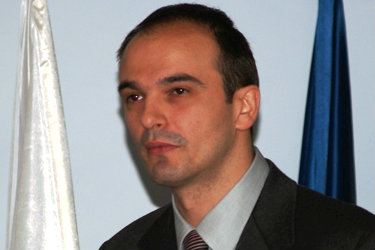 Or the representatives of the opposition who say that this will not reflect on the future investments into Elektroprivreda of Montenegro are right. Since there will not be any serious investments, as they claim. Government officials reject such doubts, “They should be given a chance and after one year we will know weather we have a good, sound or bad partner ”, stated recently Srđan Kovačević, President of the Board of Directors of EPCG with the remark that A2A “will hardly make profit of 100 million in the fifth year of management ”. And that is one of the most important items of their agreement with the Government. Is Kovačević only being cautious, or he already knows something Montenegrin public is yet to learn?
Or the representatives of the opposition who say that this will not reflect on the future investments into Elektroprivreda of Montenegro are right. Since there will not be any serious investments, as they claim. Government officials reject such doubts, “They should be given a chance and after one year we will know weather we have a good, sound or bad partner ”, stated recently Srđan Kovačević, President of the Board of Directors of EPCG with the remark that A2A “will hardly make profit of 100 million in the fifth year of management ”. And that is one of the most important items of their agreement with the Government. Is Kovačević only being cautious, or he already knows something Montenegrin public is yet to learn?

